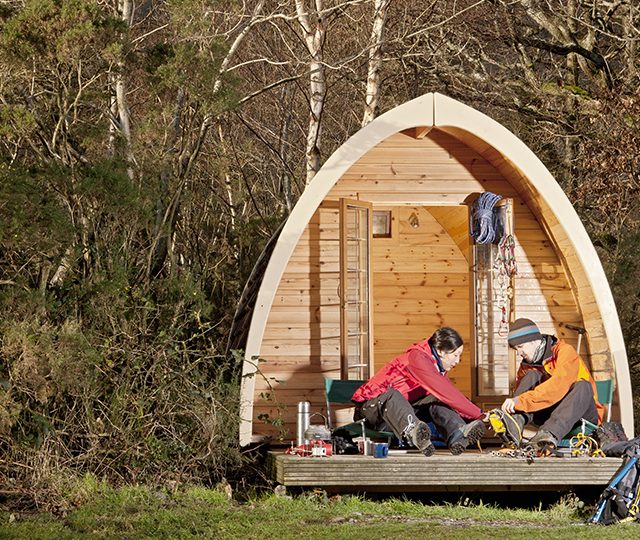Providing rural housing for an ageing population
The latest HAPPI report warns that older people living in rural areas face challenges to their well-being as their homes become unsuitable in old age. We look at what this means for the future of rural housing.
Many people dream of living or retiring to countryside homes and villages. But with a lack of suitable housing and diminishing local facilities and public transport provision, many older people are left with a difficult choice: struggle on in a home that’s unsuitable for their needs or leave their community.
The latest report from the All Party Parliamentary Group on Housing and Care for Older People tackles the challenges of providing rural housing for our ageing population.
What are the challenges?
When it comes to building new homes in rural areas there are two main challenges: availability of land and competition for the homes built on that land.
Major housebuilders and speculative developers prefer larger sites and tend to focus on the delivery of family homes rather than retirement housing. Smaller, local builders may be more likely to take on the smaller sites that come up around villages, but older people still have to compete against local demand from young people and families. Ironically, the lack of suitable retirement housing means many older people feel unable to move from their existing home, thus failing to free up much-needed affordable family homes.
Delivering care services to older people in rural areas is putting increasing strain on already over-stretched Adult Care Services. The cost of delivering care over a dispersed area where a worker may be visiting just one person in each village can be higher and recruitment more difficult. People in rural areas often live further from health services and struggle to access these services as they get older.
This problem is only likely to become more acute. The rural population is ageing faster than other parts of the country and in many rural communities, the number of residents over 65 will soon surpass those under 65.
Key recommendations of the report
The HAPPI report highlighted a clear need to make sure there are sufficient options for older people to stay in, or near, their communities while also being able to access the housing and services they need. The report makes numerous recommendations, but here are a few that we feel are particularly important:
•All new homes should be built to the Lifetime Homes standard of accessibility, and ideally in line with HAPPI design principles.
•Local Plans should contain specific sites for housing of all tenures aimed at older people who already live in rural communities.
•Homes England should restore its earlier targets for housing in rural areas and take into account the significance of meeting older people’s needs in order to free up family-sized homes.
•Focus on the creation of high-quality homes and community ‘hubs’ to bring services for people of all ages together.
•Increasing support for schemes that improve the accessibility and energy efficiency of existing housing, and help older occupiers with essential repairs.
A role for Platinum Places
The HAPPI report references our Housing Futures 2016 report which identifies demographic groups who are essential to revitalising village life. These include Elderflowers, healthy, active retirees who have considerable equity and pension income, and The Onesies, the increasing number of single-person households, many of whom are older women. Both these groups may struggle to find accommodation that meets their needs and budget in their home villages.
The HAPPI report describes a ‘hub and spoke’ model of support, with housing for older people located around central health and care services that benefit the whole community. We call these Platinum Places: mixed communities in villages or on the edge of towns which combine housing for all age groups with local amenities and health and wellbeing facilities.
Platinum Places help older people live independently in well-designed homes that are part of a wider neighbourhood. They are an aspirational alternative to remaining in the family home, making downsizing a positive choice, not a painful necessity.
The role of landowners in supporting new development
Rural landowners can play a key role in delivering affordable homes for local people, either by providing land or developing and managing the homes themselves. This can have a number of benefits:
•Community – helping retired employees and other members of the local community who can’t find a suitable home they can afford.
•Practical – supporting tenant farmers to retire, thereby freeing up the tied housing for younger employees.
•Business – releasing capital from the sale of land to re-invest in other parts of the business or diversifying by developing affordable homes to rent.
Our guide to affordable housing schemes has more information on developing affordable housing on rural exemption sites and the different options open to landowners.
The introduction of permitted development rights to convert agricultural buildings into homes also has the potential to increase delivery of rural housing. Find out more in our briefing note.






